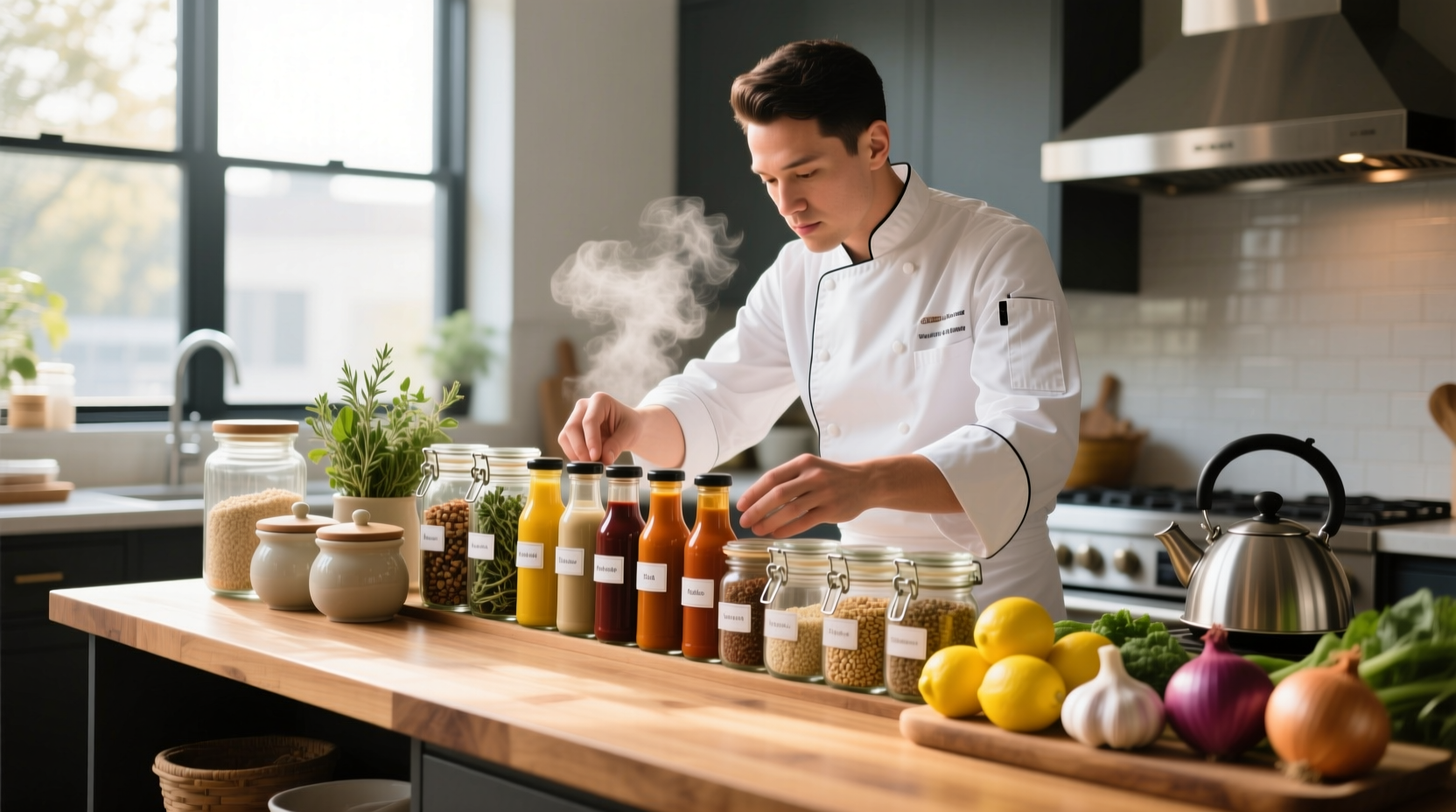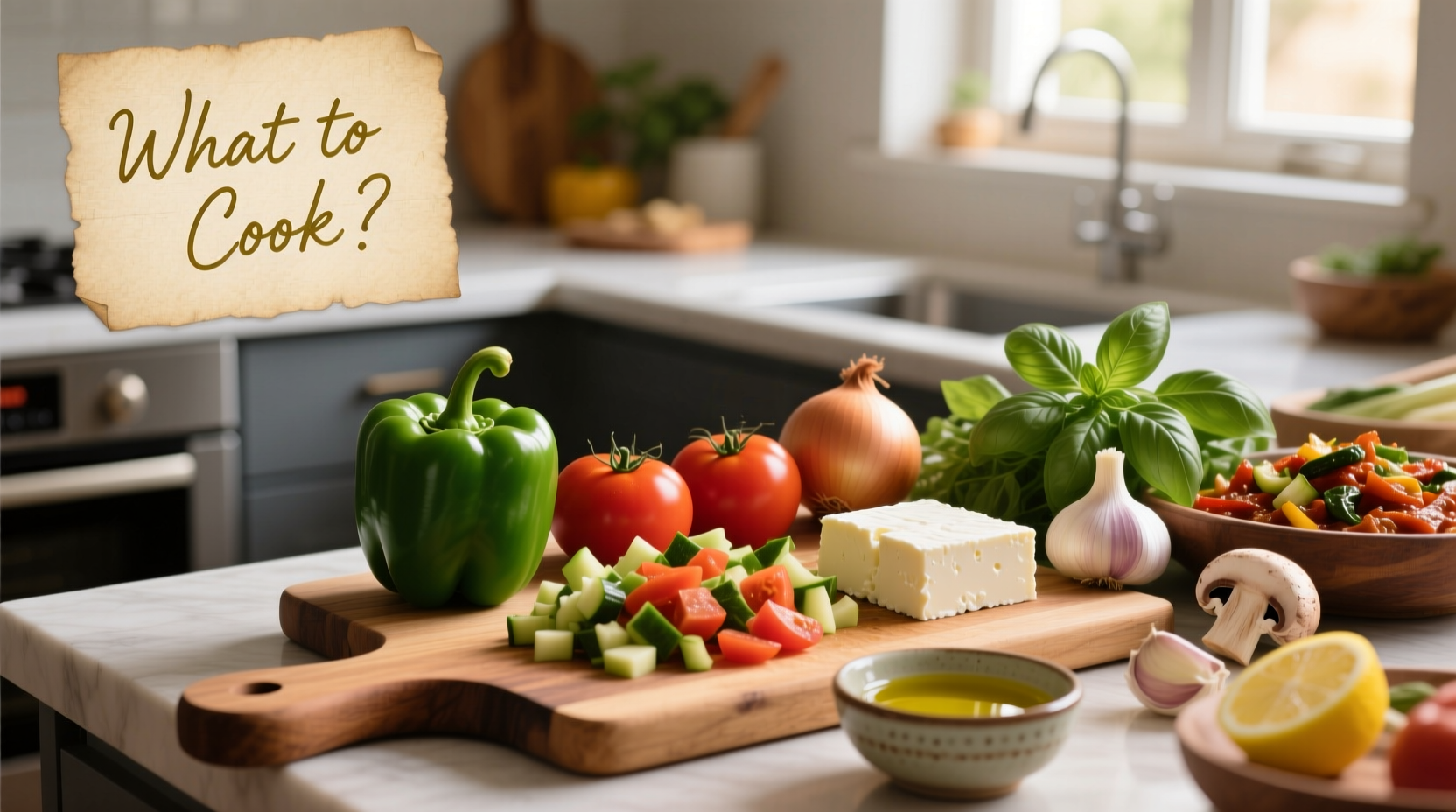Ever stared into your nearly empty fridge wondering what to cook with ingredients I have? You're not alone. According to the USDA, American households waste approximately 30-40% of their food supply, often because people don't know how to use what they already have. The solution isn't more ingredients—it's a smarter approach to meal creation.
Step 1: Take a Strategic Ingredient Inventory
Before you start cooking with what you have, organize your ingredients by category. This simple system reveals hidden meal possibilities:
- Foundation ingredients (grains, pasta, potatoes)
- Proteins (canned beans, eggs, leftover meat)
- Vegetables (fresh, frozen, or canned)
- Flavor builders (oils, vinegar, spices, herbs)
Professional chefs like those at the Culinary Institute of America use this exact categorization method to maximize ingredient utilization. When you group items this way, you'll immediately see potential meal combinations you might have missed.
Step 2: Master the Flavor Pairing Matrix
Understanding which ingredients work together transforms random pantry items into cohesive meals. This evidence-based flavor compatibility chart shows common pairings:
| Base Ingredient | Perfect Pairings | Flavor Boosters |
|---|---|---|
| Eggs | Cheese, tomatoes, spinach, potatoes | Chili flakes, fresh herbs, soy sauce |
| Canned beans | Rice, corn, bell peppers, onions | Cumin, lime, smoked paprika |
| Pasta | Canned tomatoes, garlic, olive oil | Red pepper flakes, Parmesan, fresh basil |
| Rice | Leftover meat, frozen peas, carrots | Soy sauce, ginger, sesame oil |
This flavor matrix is based on research from the FlavorDB database, which analyzes thousands of ingredient combinations to identify scientifically supported pairings. You don't need fancy ingredients—just understanding these basic relationships helps you create balanced meals.

Step 3: Apply the 3-Part Recipe Generator Formula
When you're trying to figure out what to cook with ingredients I have on hand, use this professional chef technique:
- Choose your base (something substantial that forms the meal foundation)
- Add protein (even small amounts transform a side dish into a meal)
- Incorporate flavor boosters (the magic that makes simple ingredients shine)
For example, with just rice, canned black beans, and spices:
- Base: Leftover rice (reheated with a splash of water)
- Protein: Canned black beans (drained and rinsed)
- Flavor boosters: Cumin, garlic powder, lime juice, and cilantro (if available)
Mix these together for a satisfying meal in under 10 minutes. The USDA FoodKeeper app confirms that properly stored canned beans maintain quality for 2-5 years, making them perfect pantry staples for what to cook with ingredients I have without shopping.
Step 4: Implement Smart Substitutions
When you're missing a key ingredient, these professional substitutions keep your meal on track:
- No fresh herbs? Use 1/3 the amount of dried herbs
- No butter? Substitute equal parts olive oil
- No milk? Use water with a tablespoon of butter or oil
- No eggs for binding? Try mashed banana or applesauce (for baking)
The University of Georgia's food science department confirms these substitutions maintain texture and flavor in most recipes. Knowing these swaps means you rarely need to abandon a meal plan when cooking with what you have available.
Step 5: Try These Pantry Powerhouse Combos
Based on the most common pantry items Americans have, here are three reliable meal formulas:
Pantry Pasta Perfection
If you have: Pasta, canned tomatoes, garlic, olive oil
Make this: Heat olive oil, sauté minced garlic until fragrant (don't brown), add drained canned tomatoes, simmer 10 minutes. Toss with cooked pasta and red pepper flakes. Add Parmesan if available.
Bean & Rice Bowl
If you have: Rice, canned beans, frozen corn
Make this: Mix warm rice with drained beans and thawed corn. Add cumin, lime juice, and salt. Top with hot sauce. This complete protein meal requires no special ingredients.
Egg Scramble Solution
If you have: Eggs, cheese, any vegetables
Make this: Whisk eggs with salt, pour into hot buttered pan. As eggs set, add chopped veggies and shredded cheese. Fold gently until set. The American Egg Board confirms eggs pair well with nearly any vegetable combination.
Maximize Freshness with Proper Storage
Understanding proper storage extends your ingredients' usability. According to the National Center for Home Food Preservation:
- Store herbs like flowers in water (change water daily)
- Keep potatoes and onions separate (they spoil faster together)
- Freeze leftover tomato paste in ice cube trays
- Store grains in airtight containers to prevent pantry moths
These simple storage techniques mean you'll always have more options when deciding what to cook with ingredients I have right now.
Create Flavor Without Specialty Ingredients
You don't need exotic ingredients to make delicious meals. Professional chefs create depth using these techniques with basic pantry items:
- Deglaze pans with water or vinegar to capture flavorful browned bits
- Toasting spices in a dry pan for 30 seconds intensifies flavor
- Layering garlic (add some at the beginning, some at the end) creates complexity
- Finishing with acid (lemon juice or vinegar) brightens flat flavors
These methods transform simple combinations into restaurant-quality meals using what you already have.
FAQ: What to Cook with Ingredients I Have
What's the quickest meal I can make with pantry staples?
Canned white beans with garlic, olive oil, and lemon juice makes a complete meal in 5 minutes. Drain and rinse a can of beans, heat with minced garlic in olive oil for 2 minutes, then finish with lemon juice and red pepper flakes. Serve over toast or with rice if available.
How do I know if my pantry ingredients are still good?
Check for off smells, mold, or unusual texture. The USDA FoodKeeper app provides specific shelf life information: dried pasta lasts 1-2 years, canned goods 2-5 years (discard if dented or bulging), and dried herbs 1-3 years. When in doubt, throw it out—especially with low-acid canned goods.
What's a complete meal I can make with only 3 ingredients?
Eggs, canned tomatoes, and tortillas make a complete meal. Scramble eggs, heat canned tomatoes as a sauce, and serve in warm tortillas. This provides protein, vegetables, and carbohydrates. For extra nutrition, add any available cheese or beans.
How can I add protein to meals without meat?
Canned beans, lentils, and chickpeas provide complete protein when paired with grains. Even eggs and cheese offer substantial protein. The Academy of Nutrition and Dietetics confirms that plant-based proteins like beans (15g per cup) can fully meet protein needs when properly combined with other food groups.











 浙公网安备
33010002000092号
浙公网安备
33010002000092号 浙B2-20120091-4
浙B2-20120091-4